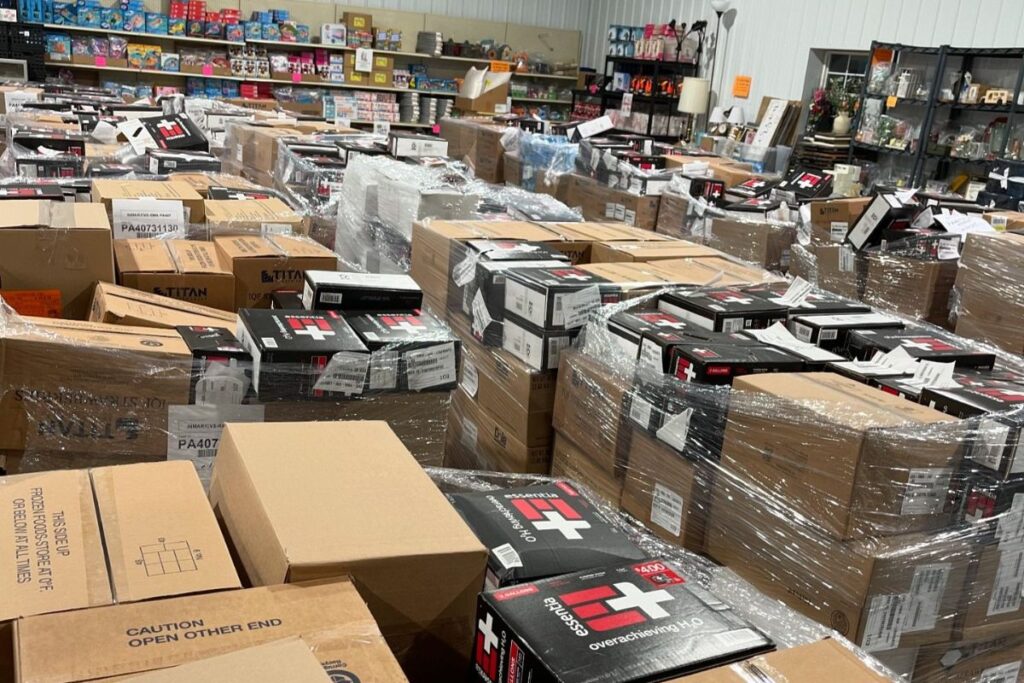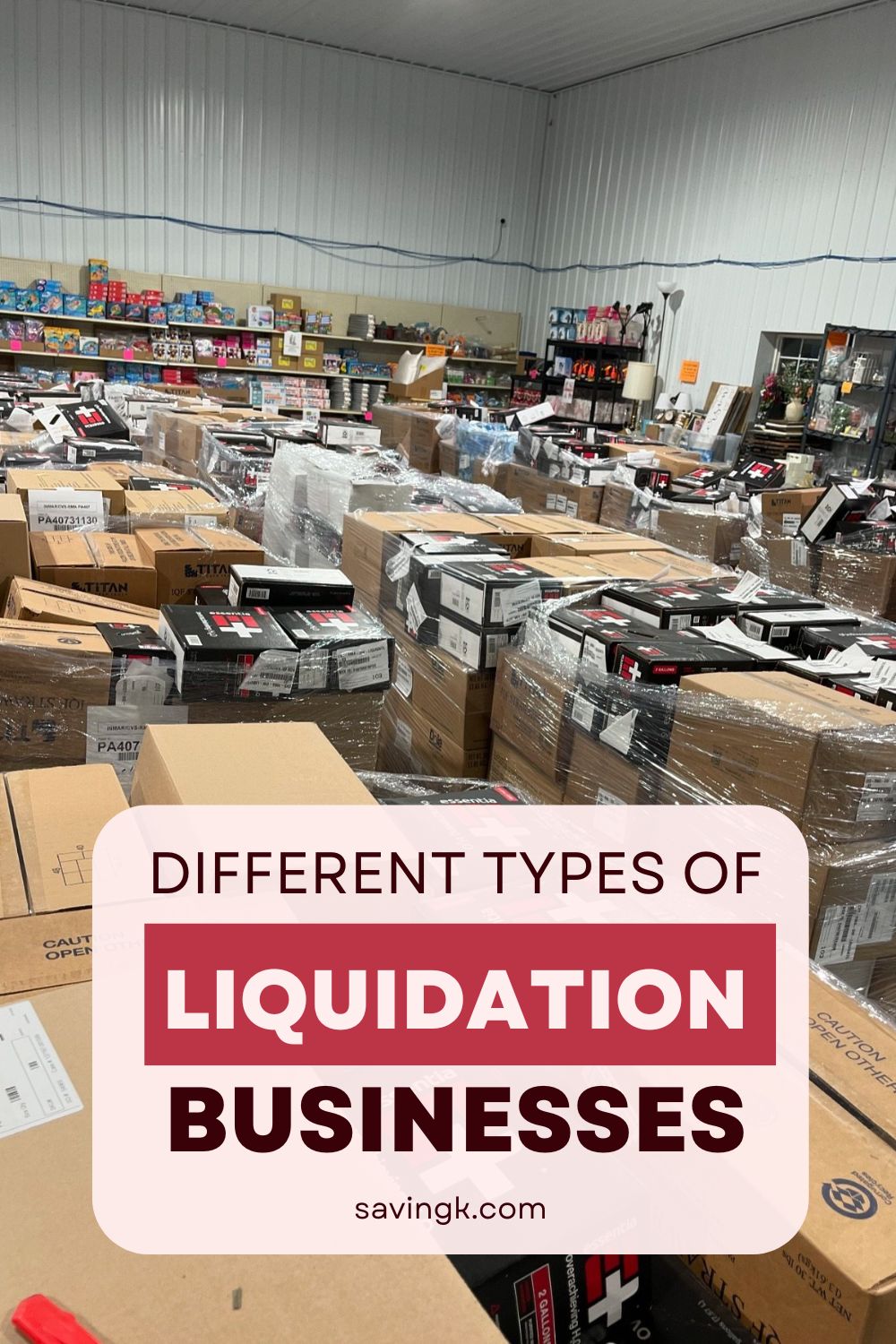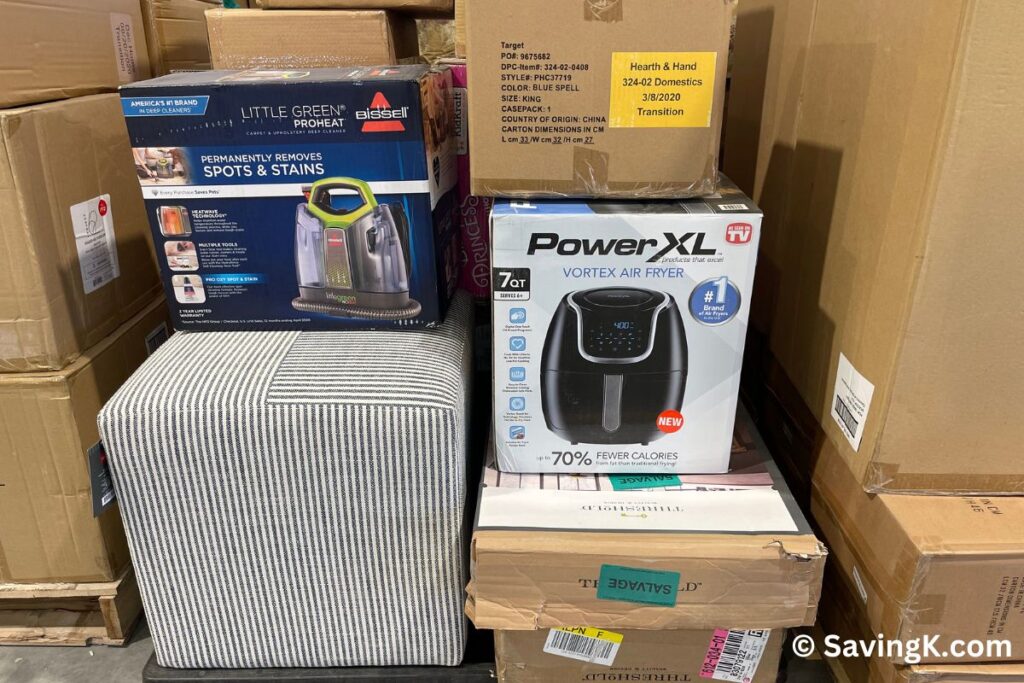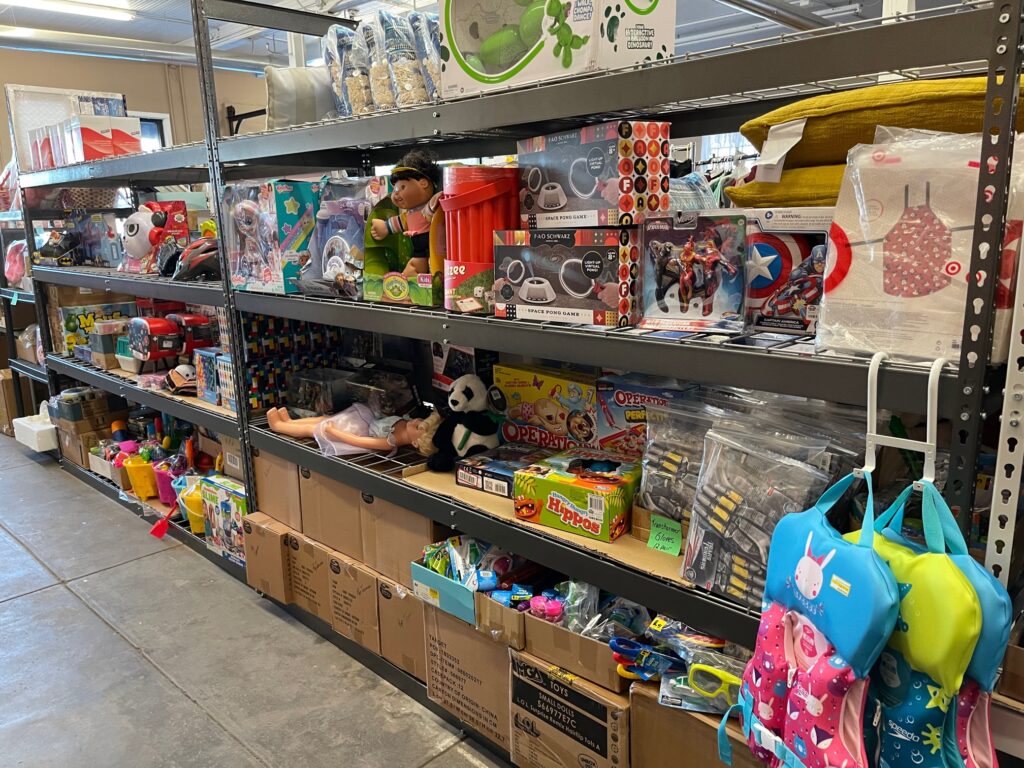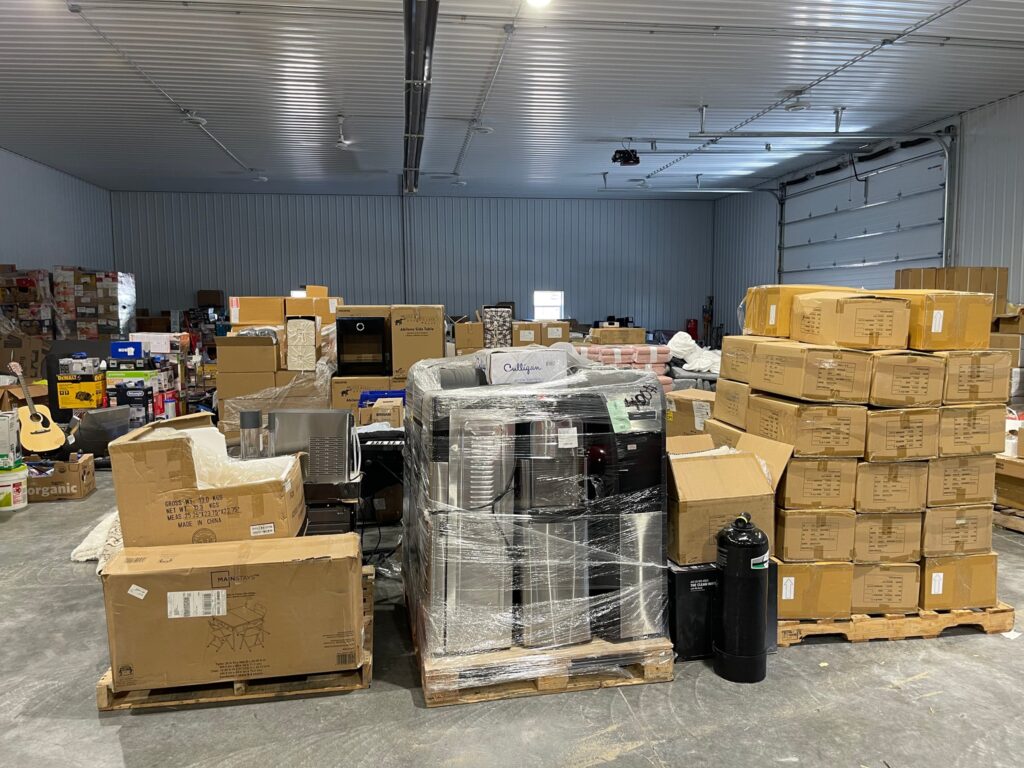
Liquidation businesses have grown in popularity as they provide cost-effective solutions for acquiring goods. These businesses deal with surplus, returned, or unsold inventory from manufacturers, retailers, or other businesses. The goal is to sell these items at discounted prices, benefiting both the seller and the buyer. Let’s explore the various types of liquidation businesses and how they operate.
Contents
Bin Stores
Bin stores are a growing trend and are physical retail locations where items are placed in large bins and sold at a fixed price, typically per item or by weight. These stores often receive truckloads of liquidation merchandise, which can include anything from electronics to clothing to household goods.
The appeal of bin stores lies in the thrill of the hunt; customers never know what treasures they might find. Prices usually decrease as the week progresses, making it an exciting and dynamic shopping experience.

Bin stores are more successful when combined with other types of liquidation businesses, such as online marketplaces or auctions (more on these to come), to diversify revenue streams and attract a broader customer base.
Popup Sales
Popup sales are temporary sales events set up in various locations, such as vacant retail spaces or community centers. These sales can last from a few hours to a few days to several weeks and often feature deeply discounted merchandise from liquidations. Liquidation Popup sales are a great way to attract attention and create a sense of urgency among shoppers. They offer the flexibility to move from one location to another, targeting different customer bases.
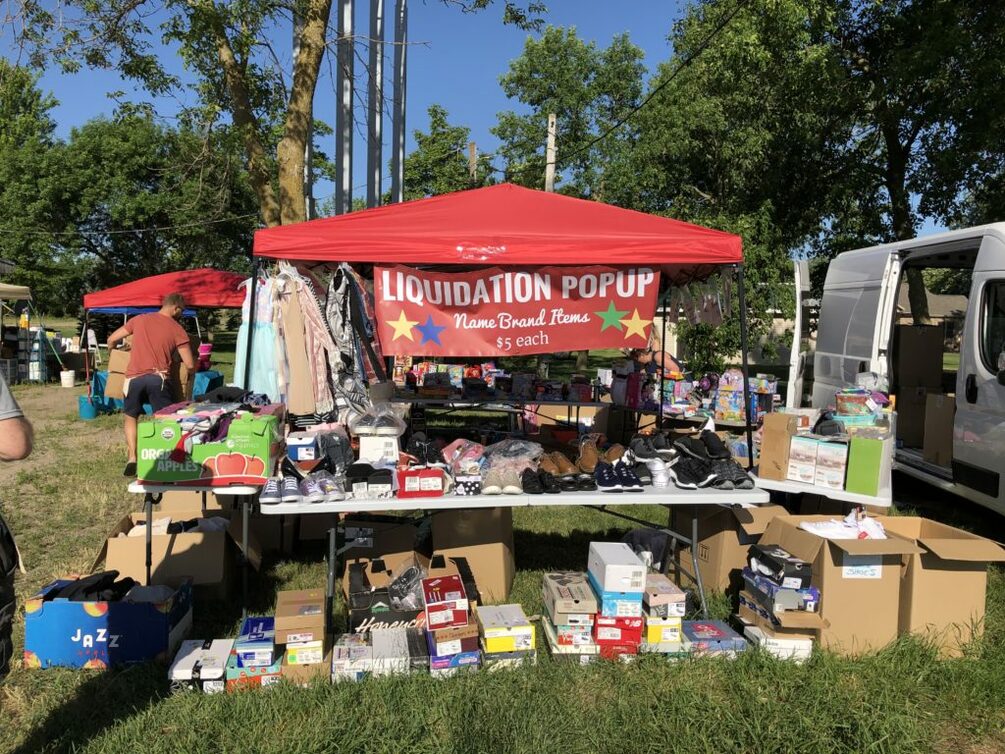
Liquidation Boutique
A liquidation boutique offers a more curated and upscale shopping experience compared to other liquidation outlets. These boutiques focus on high-end or designer items, from such places as Nordstrom Rack liquidation and Macy’s liquidation, providing customers with the opportunity to purchase luxury goods at significant discounts. The inventory is carefully selected to maintain a certain level of quality and appeal, attracting discerning shoppers looking for a bargain on premium products.
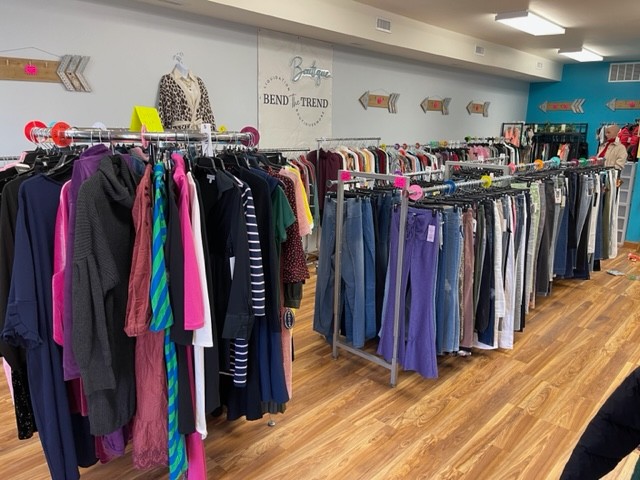
Ecommerce
Ecommerce has emerged as a powerful option in the liquidation business, providing a versatile and scalable platform for selling discounted goods. By setting up their own online stores, businesses can directly reach customers without the need for intermediaries. This approach allows for greater control over pricing, inventory management, and customer experience.
Ecommerce platforms like Shopify and BigCommerce offer user-friendly tools to create and manage these online stores, making it accessible even for those with minimal technical expertise. Additionally, ecommerce enables businesses to leverage digital marketing strategies to attract a broader audience, increasing the potential for higher sales volumes and more efficient inventory turnover.
When setting up an ecommerce store on platforms like Shopify, it’s important to note that selling certain brand names, such as Disney or Barbie, requires a manufacturer or wholesaler invoice. Liquidation invoices typically do not meet this requirement, as they often lack the official authorization needed to resell these branded products. This policy is in place to protect intellectual property rights and ensure that only genuine, authorized merchandise is sold.
Online Marketplaces
Online marketplaces have transformed the liquidation business by providing a convenient platform for buying and selling discounted merchandise. Platforms like Amazon and Poshmark offer a vast selection of surplus, returned, and overstock items, making it easy for sellers to offload inventory and buyers to find great deals. Let’s explore how these digital venues operate and their benefits within the liquidation industry.
Amazon FBA
Amazon offers the Fulfillment by Amazon (FBA) program, which allows sellers to store their products in Amazon’s fulfillment centers. They takes care of storage, packaging, and shipping, as well as customer service and returns. This service enables sellers to scale their business rapidly and reach a vast audience, while benefiting from Amazon’s logistics network and trusted reputation. However, sellers must comply with Amazon’s strict guidelines and fees, which can impact profit margins.
Poshmark
Poshmark is an online marketplace that specializes in fashion, where users can buy and sell new or gently used clothing, accessories, and more. It has become a popular platform for resellers who purchase liquidation clothing lots to sell individual items. Poshmark offers features like virtual closets, social sharing, and direct shipping to make the buying and selling process seamless.
Live Sales
Live sales bring a dynamic and interactive element to the liquidation business, combining real-time engagement with the excitement of bargain hunting.
CommentSold
CommentSold is a platform that facilitates live sales through social media. Sellers can host live streaming events where they showcase products, and viewers can purchase items by commenting during the broadcast. This method combines entertainment with shopping, creating an engaging experience for buyers. Live sales are particularly effective for moving liquidation inventory quickly, as they capitalize on real-time interaction and impulse buying.
Auctions
Auction houses or online auction platforms sell liquidation goods to the highest bidder. These auctions can be for individual items, pallets, or even truckloads of merchandise. Online auction sites like eBay, B-Stock, and Liquidation.com are popular for liquidating excess inventory. Auctions create a competitive environment, often resulting in higher prices for sought-after items, and provide a fast way to clear out large quantities of stock.
Pallet Sales
Pallet sales involve selling goods in bulk, usually by the pallet. Each pallet contains a mix of products, which can vary in condition and category. Pallet sales are attractive to resellers who have the capacity to sort, store, and sell the items individually. This type of liquidation business can be highly profitable, as buying in bulk generally means lower per-unit costs. Companies like Direct Liquidation and Liquidation.com specialize in pallet sales.
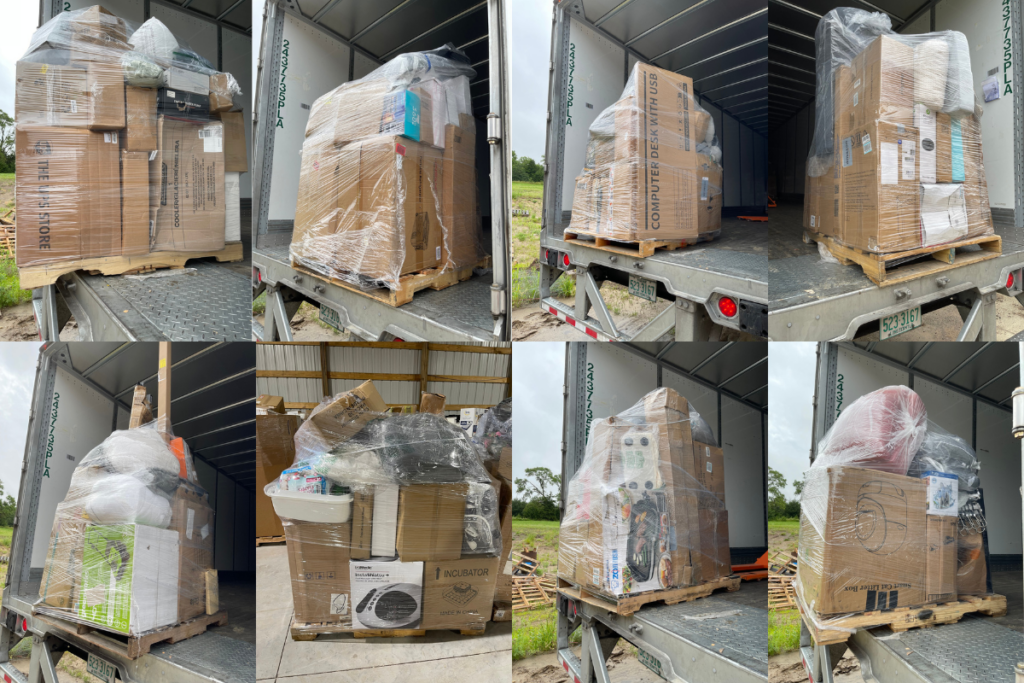
Broker (Selling Full Truckload)
Brokers in the liquidation industry deal with full truckloads of merchandise. They act as intermediaries between the source of the inventory (like manufacturers or retailers) and the buyers (often other businesses or large-scale resellers). Selling by the truckload allows for significant volume discounts, making it an efficient way to move large quantities of goods quickly. Brokers often have extensive networks and expertise in matching supply with demand.
Conclusion
For those looking to enter the liquidation business, combining several types of liquidation models can create the most effective and resilient business strategy. By integrating bin stores, online marketplaces, live sales, and other methods, businesses can diversify their revenue streams, attract a wider range of customers, and maximize their inventory turnover. This multi-faceted approach not only enhances profitability but also provides greater flexibility to adapt to market changes and consumer preferences.
The liquidation business landscape is diverse, offering various models to suit different types of buyers and sellers. From the thrill of bin stores and the exclusivity of liquidation boutiques to the wide reach of online marketplaces and the dynamic nature of live sales, there is a liquidation model for every entrepreneur and bargain hunter. Whether you’re looking to start a new business venture or simply snag a great deal, the world of liquidation has something to offer.
- Why Some People Keep a $2 Bill in Their Wallet - March 3, 2025
- Praying To Saint Anthony For Lost Items - February 6, 2025
- How To File Your 2024 Income Taxes Online For Free In 2025 - January 20, 2025
